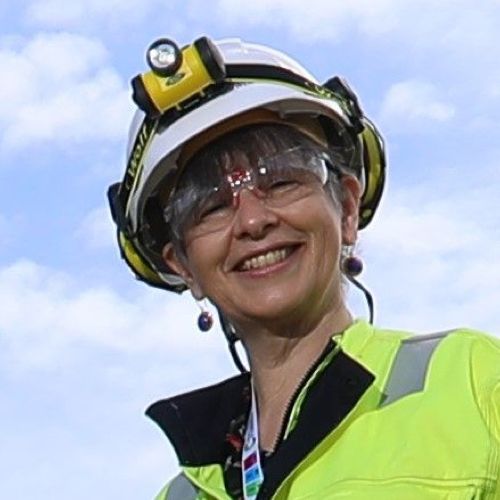ALUMNI SPOTLIGHT
Fiona Macleod on helping shape a safer, more sustainable future for chemical engineering

Alum Professor Fiona Macleod (Selwyn 1979) has spent her career in some of the world’s most high-risk industrial environments – scaling up chemical processes, managing international teams, and overseeing everything from fertiliser plants to demolition sites.
Now a professor of chemical engineering at the University of Sheffield, she’s using those experiences to teach the next generation how to lead safely and think broadly.
“Nothing truly challenging is without risk,” she says. “So – to my mind – the broader the experience, the better able we are to make balanced judgements.”

Fiona returned to the department this Easter term to speak on the 40th anniversary of the Bhopal disaster, a talk that struck a chord with students and staff alike. She also provided a talk for the Davidson Inventors Challenge final, on her career as a chemical engineer.
The chemical leak at the Union Carbide plant in India remains one of the world’s worst industrial accidents – and for Fiona, who has visited the abandoned site, the long-term consequences are a powerful reminder of what’s at stake.
“My generation underestimated the long-term persistence of man-made chemicals,” she says. “We cannot continue using our shared oceans as a sewer and the air as a chimney and the land as a waste-pit.”
She believes engineers have a critical role in building a more sustainable world – and in designing systems that prevent accidents in the first place.
"It's easy to point out what's wrong – it takes ingenuity to fix it."
Professor Fiona Macleod
Since graduating in 1983, Fiona has watched the discipline evolve in ways she couldn’t have imagined as a student. Back then, the department was based on Pembroke Street, in the heart of the city.
She remembers cycling across open fields to attend physics lectures at the Cavendish Lab – now a stone’s throw from the department’s modern home on the Cambridge West site. Returning four decades later to a department focused on sustainability and healthcare research, she sees clear signs of progress.
“The new building is much better suited to the updated curriculum, which embraces the giant leaps made in biological sciences since I was a student,” she says. “I think the department’s focus is extremely important – so long as fairness is considered. What makes sense for the healthy and wealthy may not be so important for the poor and insecure.”
Fiona’s message to alumni and students alike is that safety and sustainability go hand in hand – and that the lessons of the past must never be forgotten.
Summing up the principles she shares with her students, she quotes safety pioneer Trevor Kletz: “Understand your hazards – minimise, substitute, mitigate, simplify. What you don’t have can’t leak. People who aren’t there can’t be hurt. Better to remove a hazard than to contain it.”
Alongside her academic and industrial career, Fiona has also carved out a parallel path as a novelist, under pen name Fiona Erskine. Her Chemical Detective thriller series draws on her insider knowledge of high-hazard environments to bring engineering drama to life. Her latest novel Losing Control (2024) is set in the aftermath of Bhopal – combining fiction with a deeply personal sense of justice and reflection.
It’s perhaps no surprise that someone who has worked across continents, tackled major industrial challenges, and returned to teach the next generation would also find a voice through storytelling.
“I remind my students that effective communication is two-way – first seek to understand, then strive to be understood,” she says. It’s a lesson she seems to live by – whether she’s in the classroom, on-site, or on the page.
Losing Control is available from most bookshops and online here.



